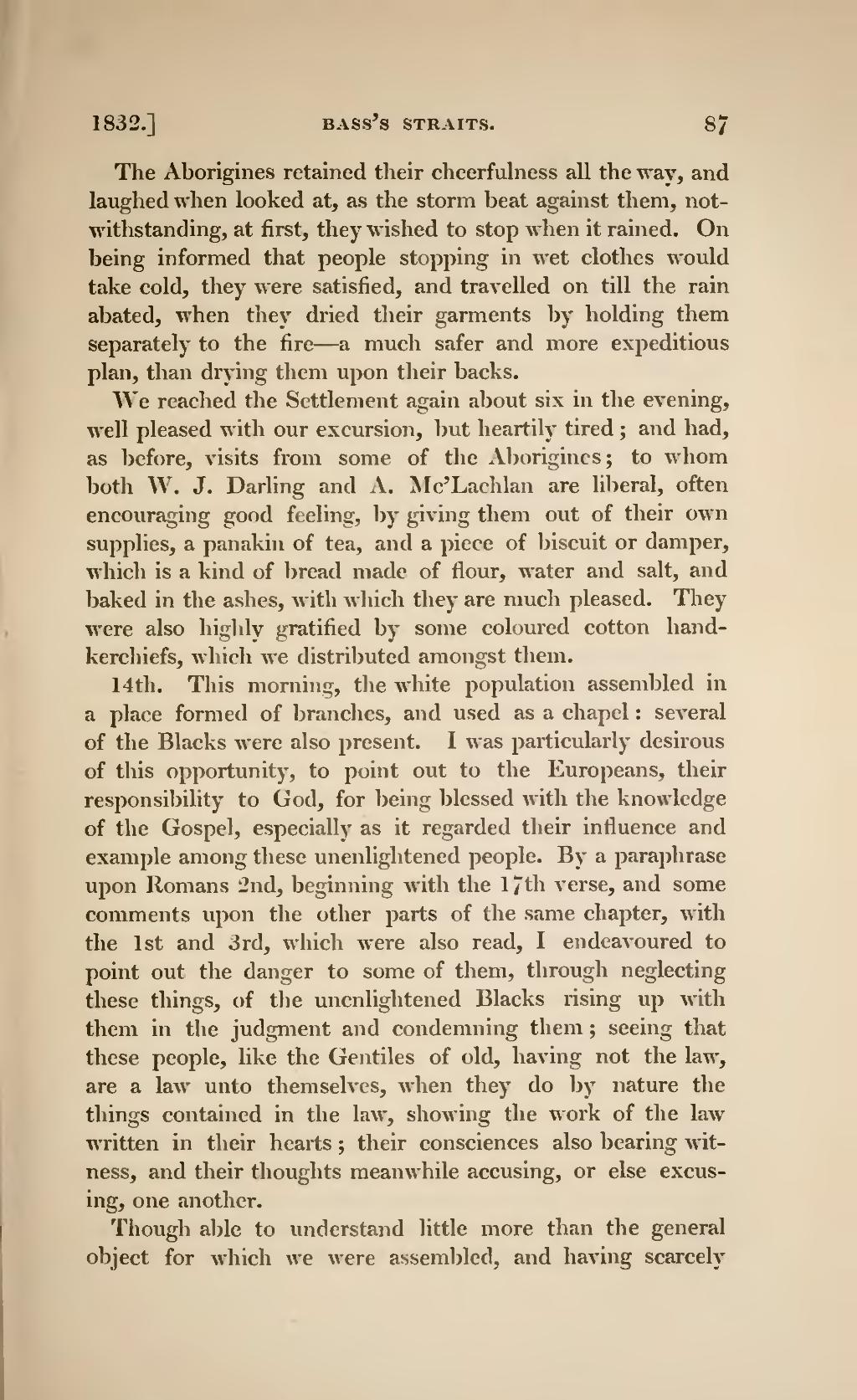The Aborigines retained their cheerfulness all the way, and laughed when looked at, as the storm beat against them, notwithstanding, at first, they wished to stop when it rained. On being informed that people stopping in wet clothes would take cold, they Mere satisfied, and travelled on till the rain abated, when they dried their garments by holding them separately to the fire—a much safer and more expeditious plan, than drying them upon their backs.
We reached the Settlement again about six in the evening, well pleased with our excursion, but heartily tired; and had, as before, visits from some of the Aborigines; to whom both W. J. Darling and A. Mc'Lachlan are liberal, often encouraging good feeling, by giving them out of their own supplies, a panakin of tea, and a piece of biscuit or damper, which is a kind of bread made of flour, water and salt, and baked in the ashes, with which they are much pleased. They were also highly gratified by some coloured cotton handkerchiefs, which we distributed amongst them.
14th. This morning, the white population assembled in a place formed of branches, and used as a chapel: several of the Blacks were also present. I was particularly desirous of this opportunity, to point out to the Europeans, their responsibility to God, for being blessed with the knowledge of the Gospel, especially as it regarded their influence and example among these unenlightened people. By a paraphrase upon Romans 2nd, beginning with the 17th verse, and some comments upon the other parts of the same chapter, with the 1st and 3rd, which were also read, I endeavoured to point out the danger to some of them, through neglecting these things, of the unenlightened Blacks rising up with them in the judgment and condemning them; seeing that these people, like the Gentiles of old, having not the law, are a law unto themselves, when they do by nature the things contained in the law, showing the work of the law written in their hearts; their consciences also bearing witness, and their thoughts meanwhile accusing, or else excusing, one another.
Though able to understand little more than the general object for which we were assembled, and having scarcely
